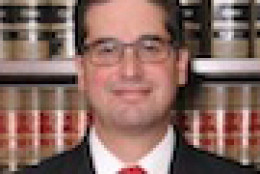federal pay
-
Rep. Gerry Connolly (D-Va.) introduced a bill this week that could have a significant impact on government employees. Instead of the usual, and sometimes forgotten, 1 percent pay increase, Connolly's bill proposes a 3.8 percent pay raise. The question now is will it ever pass? Soon after, federal employees began to speak out about the bill. Web Manager Julia Ziegler joined Tom Temin on the Federal Drive to share some of your comments.
January 16, 2015 -
A group of Democrats on Capitol Hill are proposing a 3.8 pay hike for federal employees. That's a good thing, right? Senior Correspondent Mike Causey says the answer is complicated.
January 16, 2015 -
With fewer SES awards being handed out, Carol Bonosaro, president of the Senior Executives Association, wonders whether executives are performing less well than they did in years past or if the standards simply have gotten too tough?
January 13, 2015 -
Companion bills introduced in the House and Senate would give federal employees a 3.8 percent pay raise next year. Federal employees received 1 percent pay raises in both 2014 and 2015, after three years of pay freezes.
January 13, 2015 -
Federal employees covered by the General Schedule and members of the military, among other feds, will get a 1 percent pay raise in January. Late Friday, President Barack Obama signed an executive order calling for the increases.
December 20, 2014 -
In the famous folk song, railroad worker Big Jim Goff is blown a mile into the air by a premature explosion. Come the next payday, he's a dollar short. The mean foreman informs him, he was docked for the time he was up in the sky. That scenario is not so far-fetched. The same issues come up in modern workplaces, federal and private sector. Employment attorney Heidi Burakiewicz, a partner with Mehri and Skalet, joined Tom Temin on the Federal Drive to discuss two cases — one in the federal sector and one in the private.
December 18, 2014 -
When Congress resumes, Rep. Eleanor Holmes Norton is set to introduce a bill that directs federal agencies to give preferential points to federal government vendors based on their labor practices. Norton's is the latest in a series of bills and orders designed to improve working conditions for federal contracting employees.
October 30, 2014 -
The Department of Labor released its final rule for a minimum wage hike for federal contracting employees by 2015.
October 09, 2014 -
Will Congress pass a continuing resolution? Will Republicans try to block a 1 percent pay raise for feds? Federal News Radio tells you what to watch for as lawmakers return to Capitol Hill for a busy two weeks.
September 08, 2014 -
Although feds received a 1 percent pay raise last January and can expect a repeat come 2015, they may still be feeling the effects of the Great Recession, says Senior Correspondent Mike Causey.
September 04, 2014 -
Federal employees are in the same boat as many private sector workers when it comes to cost-of-living pay increases. But, at least, feds can look forward to a likely 1 percent pay bump next January, says Senior Correspondent Mike Causey.
September 03, 2014 -
In a new report, the Government Accountability Office says the Office of Personnel Management needs to be more aggressive in updating the 55-year-old General Schedule, the system that governs pay for most white-collar federal jobs.
September 02, 2014 -
President Barack Obama called for a 1 percent pay increase for federal employees Friday to go into effect on Jan. 1, 2015. Congress still has the ability to block the increase when members return to work Sept. 8.
August 29, 2014 -
The government is on the hook for violating its own labor laws. A federal judge ruled this week that the government failed to provide on-time pay to federal employees who worked during last year's 16-day shutdown. Federal Employment Attorney Jonathan Bell joined Tom Temin on the Federal Drive with details on the complaint.
August 21, 2014 -
Office of Personnel Management asks agencies to consider how the proposed across-the-board 1 percent pay increase for all federal employees will impact the special rates some employees salaries are calculated on.
August 12, 2014





